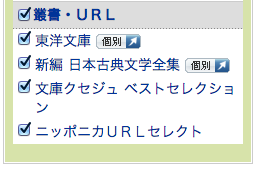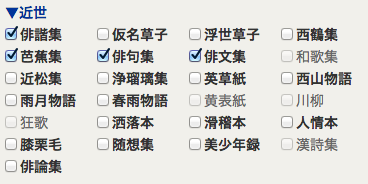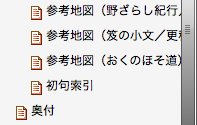季語 and other info for haiku assigned
Getting information on the 季語 (and other things)
* Vocabulary work for haiku has an additional special requirement: Besides the usual vocabulary work, I would like you to work with the 季語 (noted for each poem) and list that 季語 in the Google Doc. It should be the last line of your excel submission to me and should say 季語 in the definition, plus the month that is represented like this 秋, or, if you have the information, like this: 秋2ー八月 which means "a kigo for mid-autumn, which is the 8th month" (春:1-3月、夏:4-6月、秋:7-9月、冬:10-12月) THEN, if there is a relevant haiku you have come across that helps understand the poem, great, if not, not something about how this 季語 seems to be used.
I list the 季語 for each poem. As requested on the Session 21 page I would like you to work with these.
If you use JapanKnowledge search engine:
Generally you will do better using the larger dictionary (日本国語大辞典) than using the short dictionary (デジタル大辞泉). Usually, the entry first gives you factual information about the insect itself. Then, towards the end of the entry, it explains what it usually represents in haiku. Then it gives the season: <李・秋> (the 季=季語). Finally it gives you some poems to work with if you want.
If you use JapanKnowledge, SNKBZ (新編日本古典文学全集) database,
first you need to get to that page by clicking on the arrow:
Then, clear all checked off texts (全解放) and recheck these:
That will get you close to the poem. It isn't easy since the poem number cannot be searched and the poem itself might be recorded in a form different than what you have. I find that fastest thing is to go to the index and check the first line (初句索引) that you can find in the sidebar:
This might seem like a lot of work, and it is, but the rewards are there: great notes to all your vocabulary items, commentary, other versions of the poem and so on.
There are 歳時記(さいじき) in the library.
These give pictures, explanations and poem exampls for all 季語. Please do not check them out so we can all use them! They will be faster and easier to read than JapanKnowledge, if you are on campus.
Most online 歳時記 are pretty awful.
Use them with great care (you should probably confirm using a second Web site).
If you use the Web,
proceed with great care. Most of these poems are famous, though, so you might find some good commentary.


